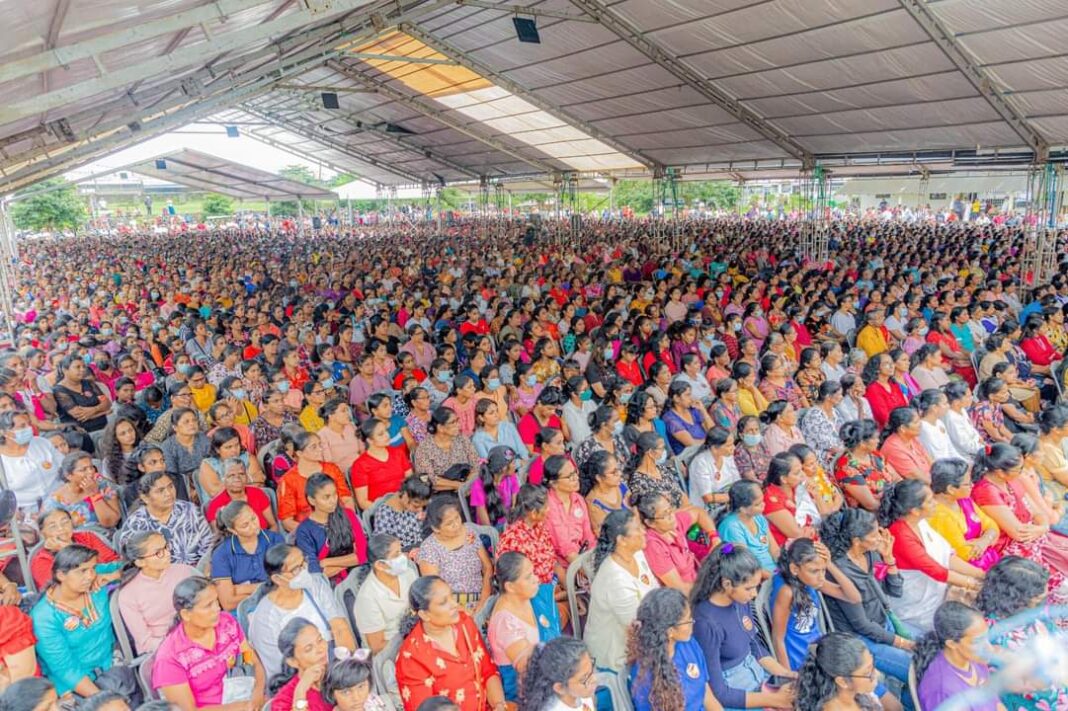As the spectre of a general election looms over Sri Lanka, the political elite and the economically powerful are gripped with panic. Recent newspaper articles have been rife with speculations about the potential upheaval that such an election could bring. However, amidst their apprehension, it’s crucial to recognise that elections present a beacon of hope, particularly for the impoverished masses of Sri Lanka.
For too long, the interests of the wealthy and influential have overshadowed the needs of the majority.
The anticipation of a general election has sent shockwaves through the corridors of power, primarily because it threatens to dismantle the entrenched privileges enjoyed by a select few. Despite the prevailing economic and debt crises plaguing the nation, a significant segment of society continues to benefit from a system riddled with corruption, mismanagement, and poor governance.
For too long, the interests of the wealthy and influential have overshadowed the needs of the majority. The public sector has been exploited to serve private agendas, perpetuating a cycle of inequality and disenfranchisement. However, the impending election offers an opportunity to reverse this tide and pave the way for a more equitable Sri Lanka.
The current approach to economic recovery, driven by IMF prescriptions, has proven ineffective and detrimental to the well-being of the people.
At the heart of the matter lies the stark reality faced by a majority of Sri Lanka’s population. Uncertainty looms large as they grapple with hunger, malnutrition, inadequate healthcare, precarious employment, and meagre wages. Despite the rhetoric of “trickle-down economics,” the wealth amassed by the elite has failed to alleviate the plight of the economically disadvantaged. Generations of tea plantation workers, for instance, continue to endure hardships despite their contributions to the nation’s economy.
The current approach to economic recovery, driven by IMF prescriptions, has proven ineffective and detrimental to the well-being of the people. By prioritising growth and GDP over genuine human development, these policies exacerbate inequalities and deepen social divisions. Moreover, they fail to address the root causes of poverty and economic instability.
The stark global inequality and persistent poverty, even within affluent cities like New York and London, underscore the imperative for exploring alternative approaches to mitigate social and environmental degradation. Dismissing alternatives to current economic paradigms, by simply pointing to past failures, is intellectually dismissive and hinders progress towards finding innovative solutions.
Sri Lanka’s external debt burden serves as a testament to the flawed nature of the prevailing economic model. It is unjust for the populace to shoulder the burden of debts accrued to enrich a privileged minority worldwide. Furthermore, the hardships inflicted by an economic system that facilitates illicit financial activities and shelters stolen assets abroad are intolerable. Addressing regressive tax policies and emphasising the importance of prioritising social welfare programs are imperative steps toward uplifting the most vulnerable segments of society.
“Progressive policy options on the macroeconomic front offer a pathway towards stabilising the wellbeing of people. Elections have the potential to facilitate crucial regulatory reforms, essential for accelerating these improvements.”
The existing social safety net is riddled with inefficiencies, leaving many deserving individuals without support. A universal social benefit program, targeting families with children, the elderly, and the disabled, could provide a lifeline to those in need. Such a scheme would ensure that no one falls through the gaps of the system and would represent a step towards a more inclusive society.
Escaping the severe economic and debt crisis plaguing Sri Lanka is a formidable challenge, compounded by intricate geopolitical dynamics, the instability of an unjust global economic system, the ramifications of the climate crisis, the haemorrhaging of skilled labour, and the unresolved ethnic tensions, among other hurdles.
Progressive policy options on the macroeconomic front offer a pathway towards stabilising the wellbeing of people. Elections have the potential to facilitate crucial regulatory reforms, essential for accelerating these improvements.
However, with the 2024 election on the horizon, Sri Lanka must prioritise fortifying its institutions and governmental frameworks. Genuine systemic change, aimed at crafting an economy that prioritises the welfare of its citizens, hinges on the establishment of resilient governance structures. The electorate’s actions aren’t arbitrary; rather, they signify a fervent aspiration for substantive and enduring reform.
Image: NPP/JVP women’s meeting in Matara in December 2023.
The forthcoming general election holds promise for Sri Lanka’s impoverished majority. It presents an opportunity to challenge entrenched power structures, prioritise social welfare, and chart a new course towards inclusive growth and development. As the nation stands at a crossroads, it’s imperative to seize this moment and usher in a brighter future for all Sri Lankans.
(The writer is a co-founder of the Institute for Political Economy (www.ipe-sl.org) and a former elected Local Councillor for London in the United Kingdom. He could be reached via email [email protected].)
Courtesy of Daily FT.

